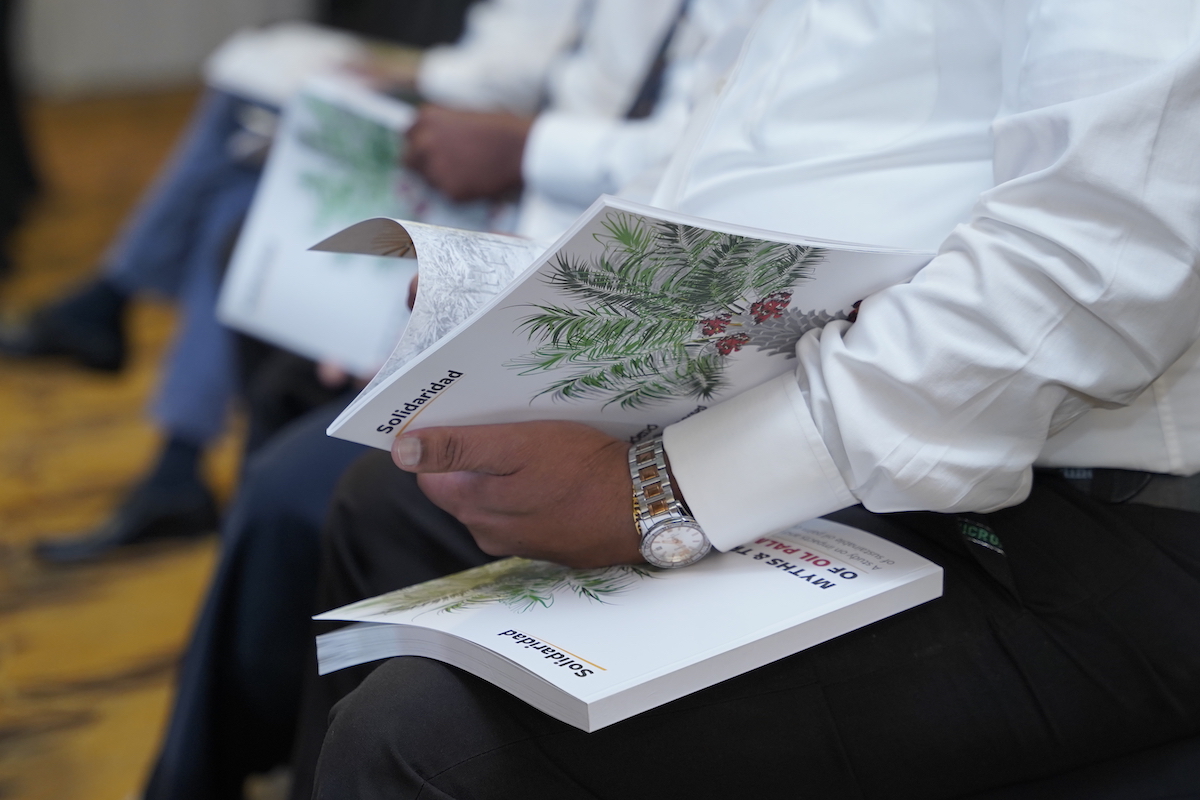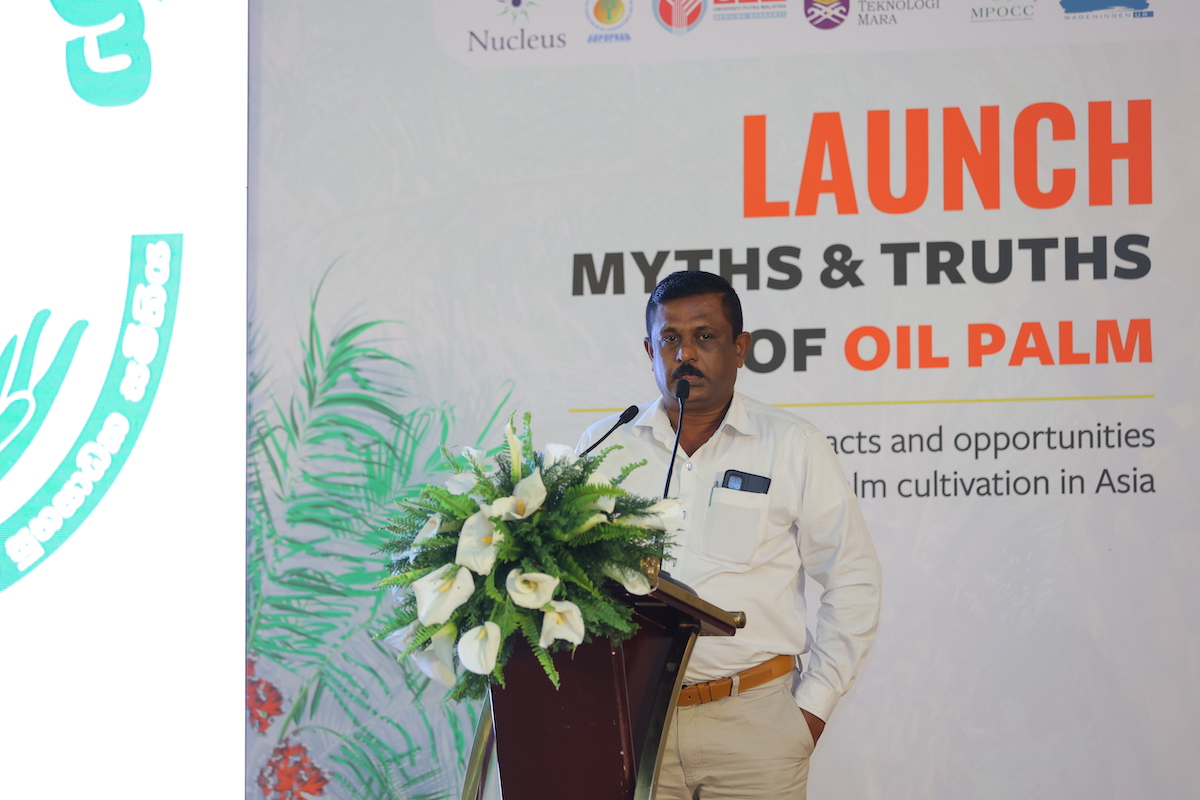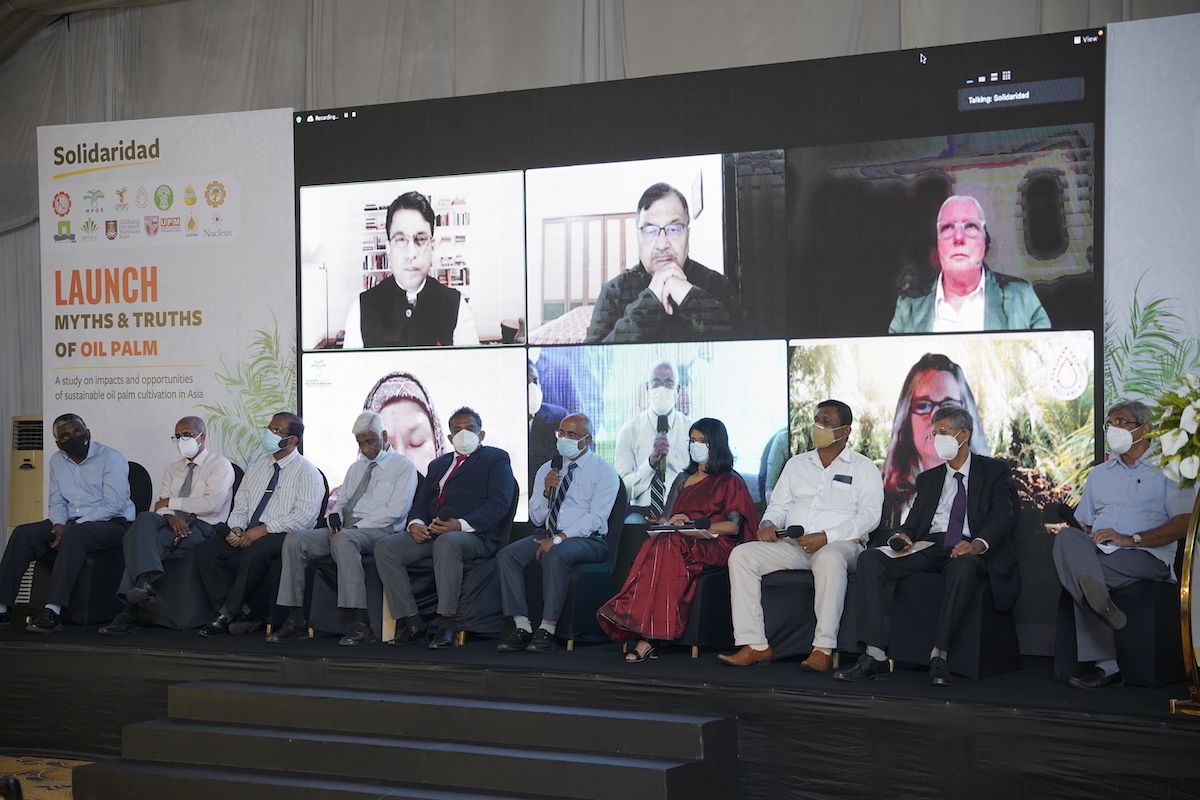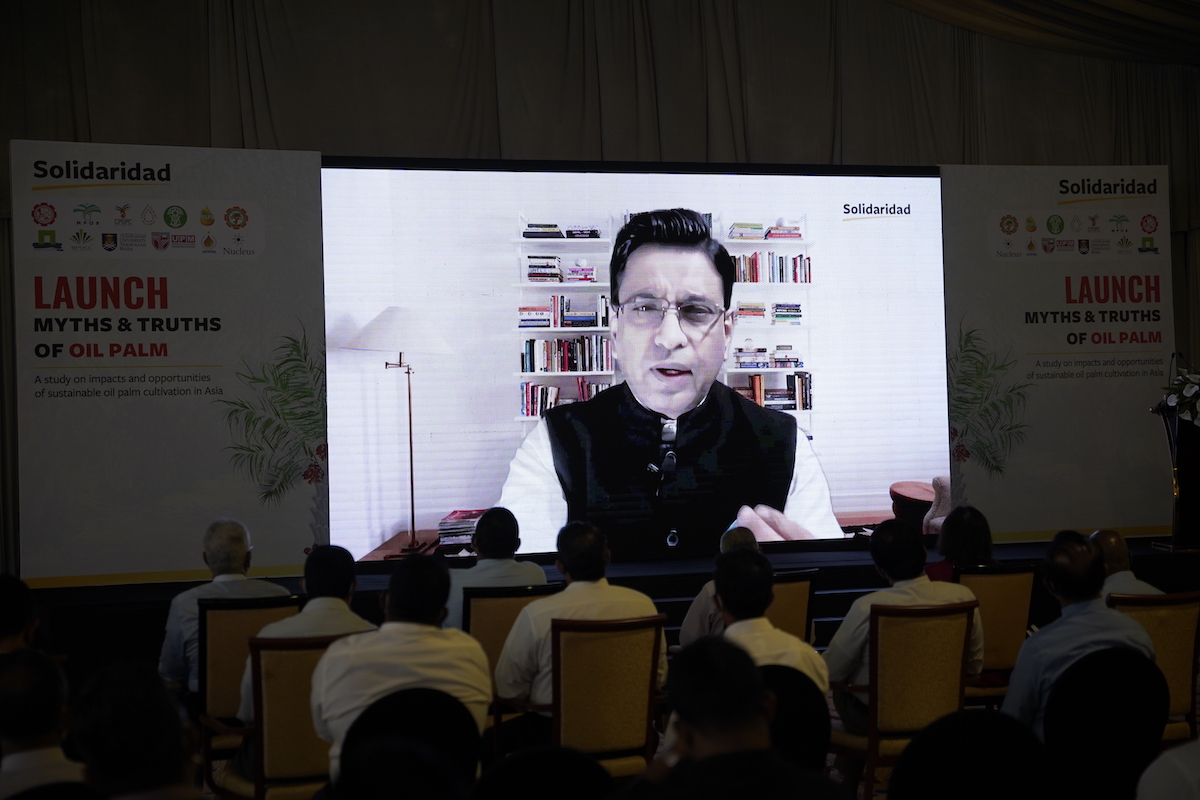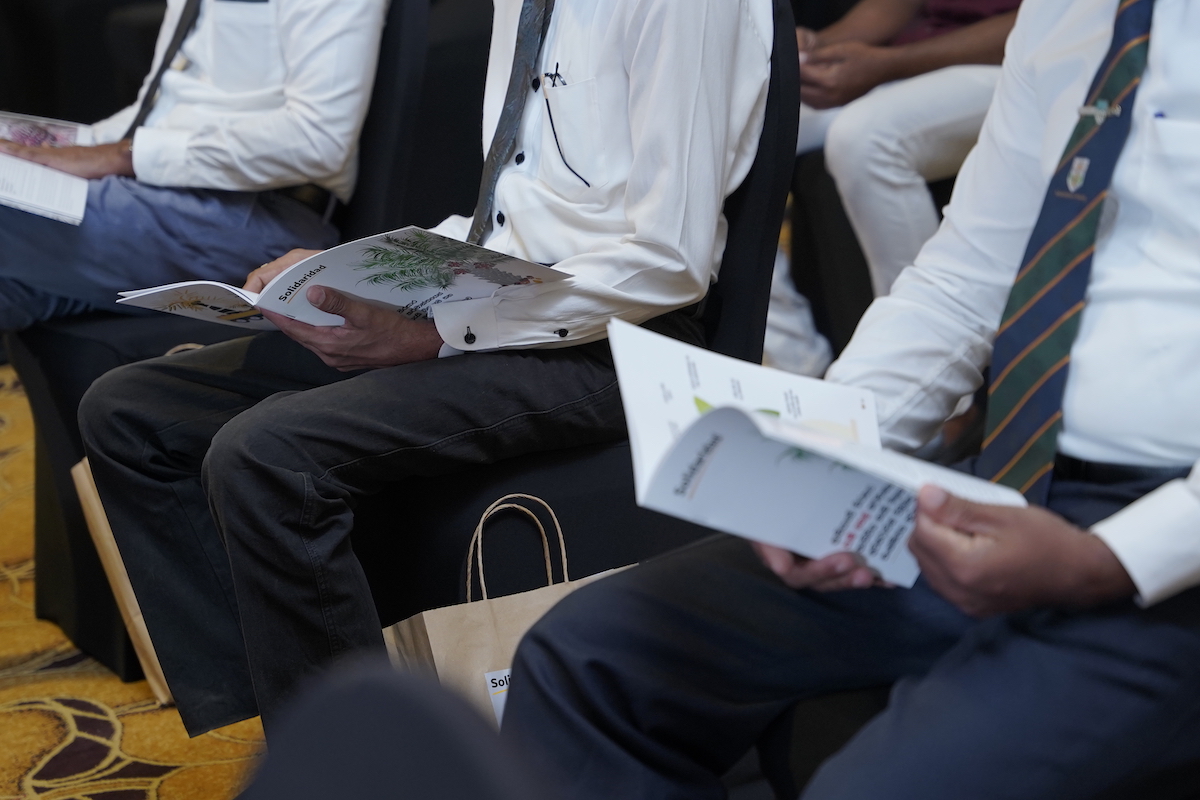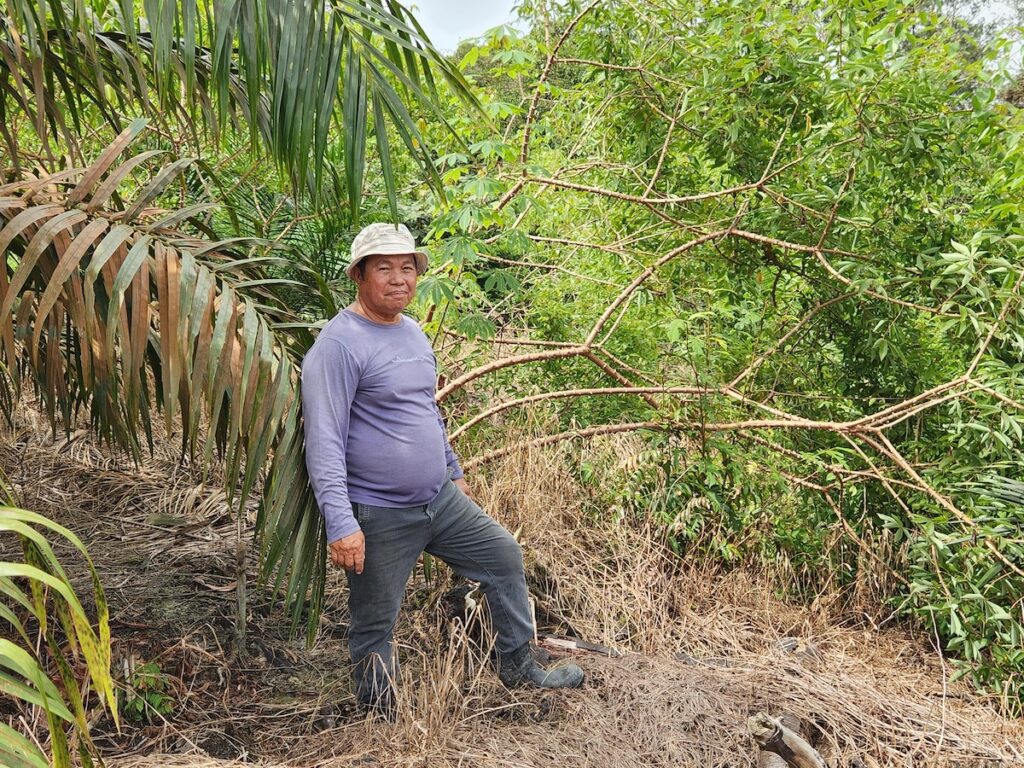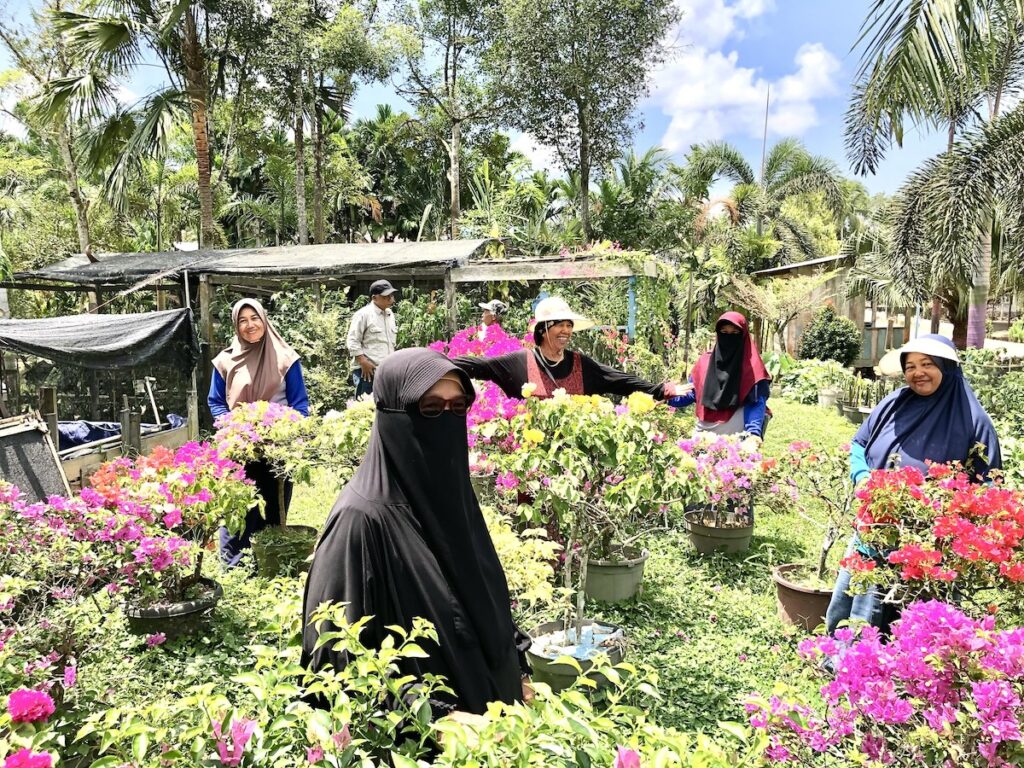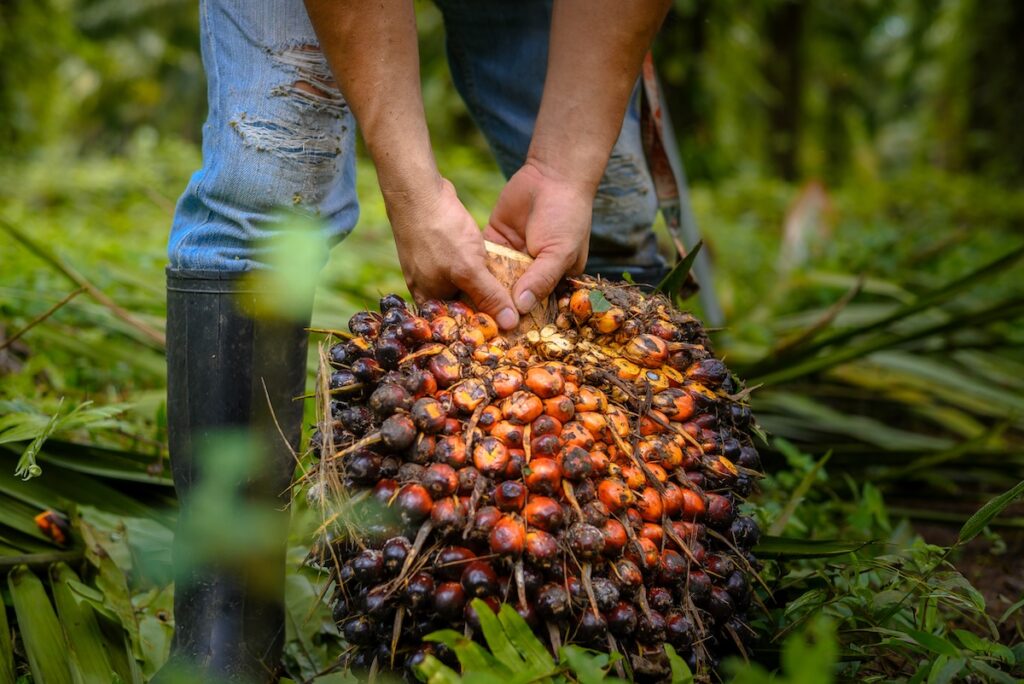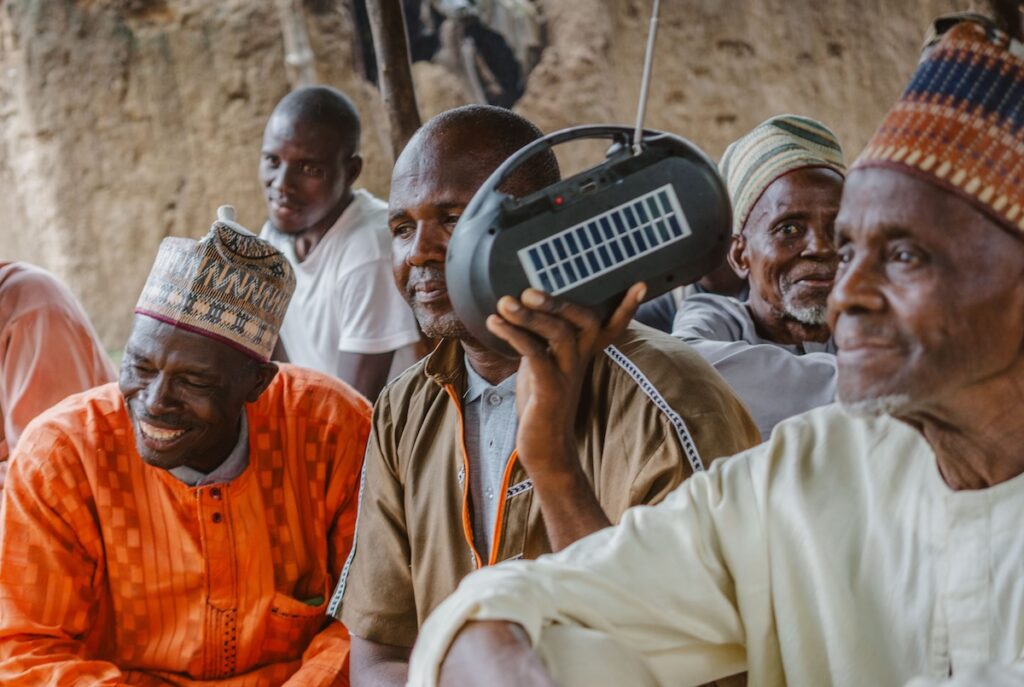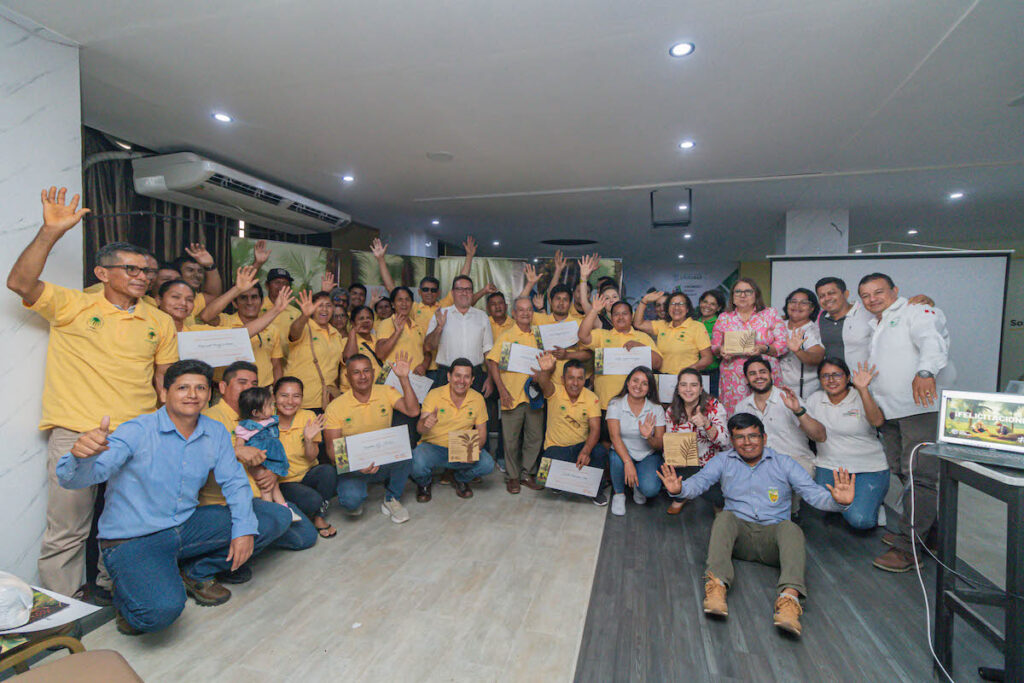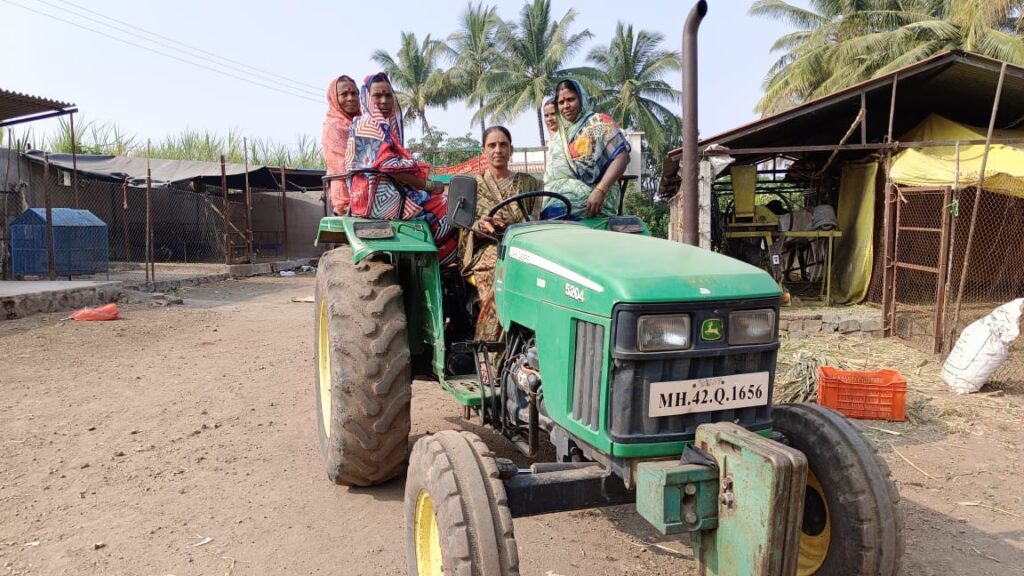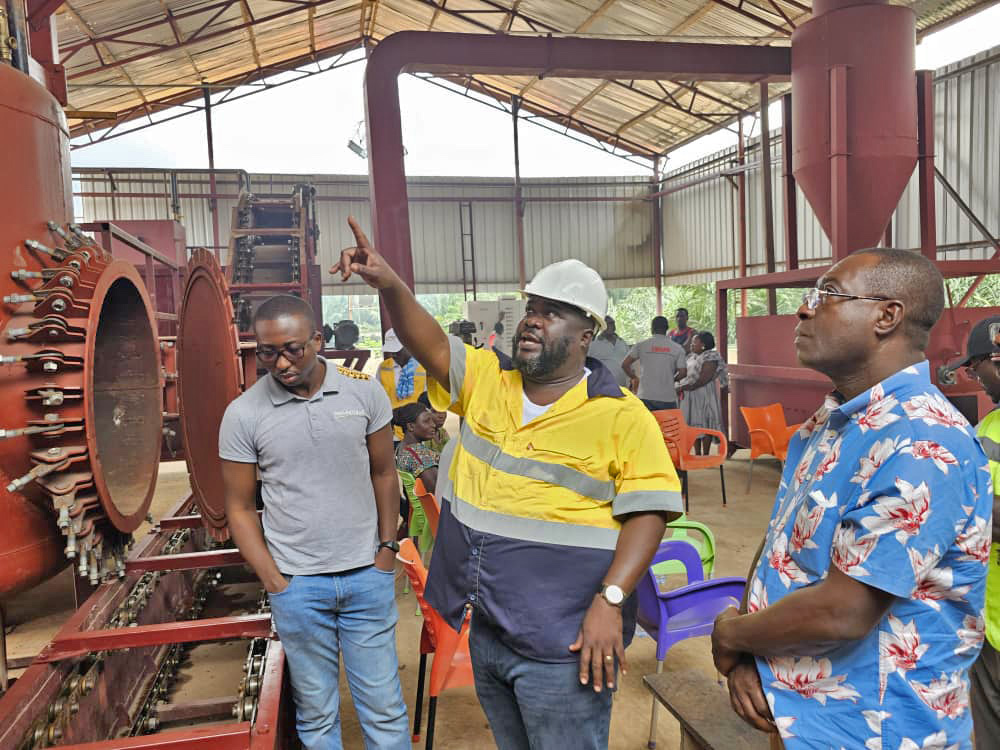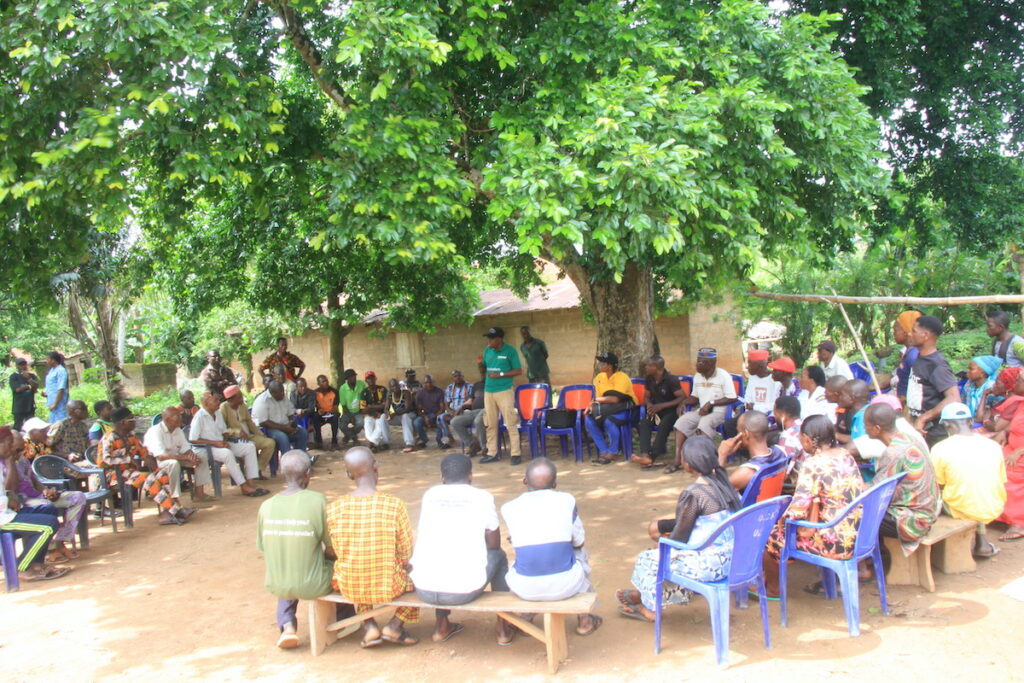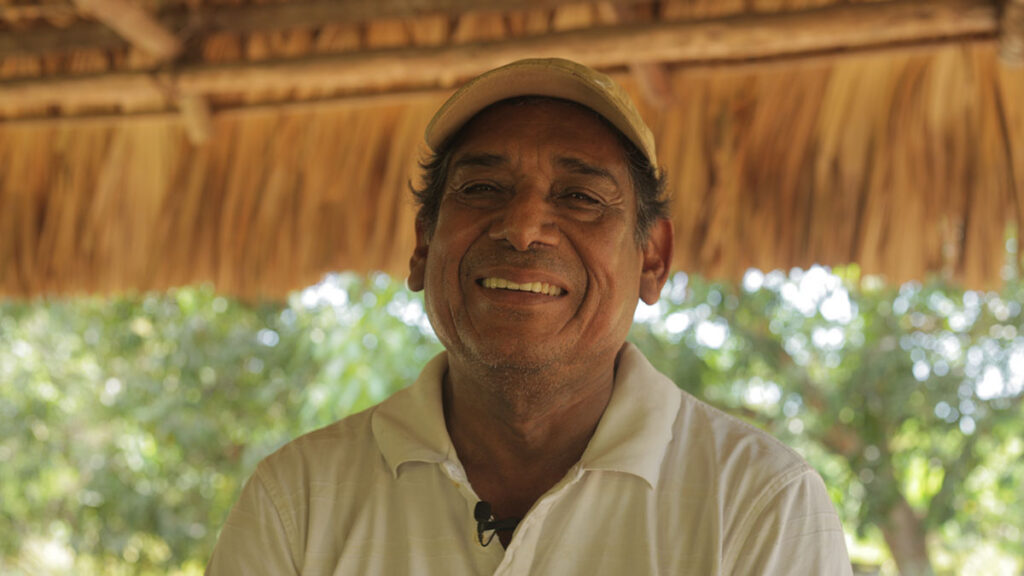Oil palm is considered to be one of the most competitive vegetable oil crops in terms of productivity. The crop provides five times as much vegetable oil per hectare compared to alternative crops, such as coconut, and sequesters more carbon per hectare than tea and coconut. According to studies conducted by Sri Lankan scientists, per litre of palm oil requires less fertilizer and less water than coconut, dry rubber or tea. The crop primarily uses rainwater for cultivation, and there is no evidence of palm oil plantations causing groundwater depletion. Yet, despite a wide range of virtues, the Sri Lankan government has decided to ban palm oil production, ordering replacement of oil palm trees with rubber plantations, on grounds of unfavorable environmental and social impacts.
Myths & Truths about Palm Oil Cultivation in Sri Lanka
Claims that oil palm plantations in Sri Lanka lead to widespread deforestation and damage to ecosystems are not supported by rigorous and open scientific research. In Sri Lanka, oil palm does not replace forest but other plantation crops, primarily rubber and coconut. Therefore, its biodiversity performance needs to be compared with these crops, and as found in various studies, the differences in biodiversity between oil palm, rubber, tea and coconut plantations are neither significant nor conclusive.
In an attempt to counter the myths around palm oil and its production, Solidaridad has released the “Myths and Truths of Oil Palm”, a research-based scientific study that provides information and assessments on palm oil through an in-depth literature review on research findings by over 15 leading scientists from top universities and research institutions across Indonesia, Malaysia, India and Sri Lanka. A result of extensive research, the publication vividly portrays the social, economic and environmental impacts of oil palm production.
Research Highlights
- Sri Lanka annually imports 180,000-220,000 MT of vegetable oil. This can be met with 50,000 ha of oil palm or 271,000 ha of coconut. Oil palm yields 4 to 5 times more oil per ha.
- Oil palm plantations have served Sri Lanka for over 54 years, starting ni 1968
- No evidence found of soil and water resource degradation in oil palm growing estates in Sri Lanka
- Average profits generated per he/year were: LKR 900,000 for oil palm; LKR 280,000 for coconut, LKR 70,000 for rubber, and LKR 45,000 for tea.
- The daily wages per month for workers was found to be: LKR 30,000-50,000 for oil palm workers, LKR 25,000 for tea estate workers, and LKR 18,000 for rubber tappers.
- In Sri Lanka, the water footprint of coconut oil is 10,548 m3 water/tonne, while for palm oil it is 3,946 m3 water/tonne
Setting the tone
The research paper was launched on 19 January 2022 in a hybrid event with scientists, government ministries and departments, research institutes, private sector representatives, community organisations, media and other participants from Sri Lanka joining the event physically. Panelists and participants from India, Indonesia, Malaysia, the Netherlands and other parts of the world attended the event virtually.
Among the panelists, Dr. Shatadru Chattopadhayay, Managing Director, Solidaridad
Asia, began the session on a strong and positive note, highlighting the socio-economic impacts of the crop.
Stop condemning palm oil while adulating other oils, especially when we know that palm oil provides livelihoods to thousands of communities.
Dr. Shatadru Chattopadhayay, Managing Director for Solidaridad Asia
Professor Maja Slingerland from the Wageningen University of the Netherlands, who is also the study reviewer and editor, spoke at length on the impacts and opportunities of oil sustainable palm cultivation in Asia.
Research scholar, Dr. Ranjith Mahindapala, presented the audience with the key findings and recommendations from the publication. The panelists also included Mr. Manjula De Silva, Ceylon Chamber of Commerce, Sri Lanka; Mrs. Musdahlifah Machmud, Coordinating Ministry for Economic Affairs, Indonesia; Mr. Atul Chaturvedi, Solvent Extractors Association, India; Dr. Ahmad Parveez Ghulam Kadir, Malaysian Palm Oil Board, among others.
An ardent call to action
One of the panelists, Ms. Margot Logman, Secretary General of the European Palm Oil Alliance (EPOA), delivered a powerful argument through her presentation about the urgency of making palm oil sustainable.
[The] only alternative to palm oil is sustainable palm oil. We need to tell the complicated truth about sustainable palm oil; not a simple story.
Margot Logman, Secretary General of the European Palm Oil Alliance
“We need to win the trust of consumers with facts, and not emotions, in support of palm oil in Europe,” Logman said.
Logman’s call for a perception makeover of the crop was echoed in the smallholder representative Mr. Nimal Wijesinghe’s address to the audience. The president of the Haritha Derana Smallholder Association in Sri Lanka narrated how the small farmers in the region had developed misconceptions about oil palm primarily because they did not grow it and were not aware of the truths about the crop. “On learning about the higher profit and income of oil palm cultivation over other crops, they asked me: Can’t we grow this crop?” he said.
Wijesinghe’s appeal to the authorities marked the denouement to the session as he urged, “Give this crop to the smallholder; give it to the person who owns half an acre of land…the person who can grow only 25 trees. That would be the real Samurdhi (prosperity; also, the name of a government welfare scheme for low-income families in Sri Lanka).”

